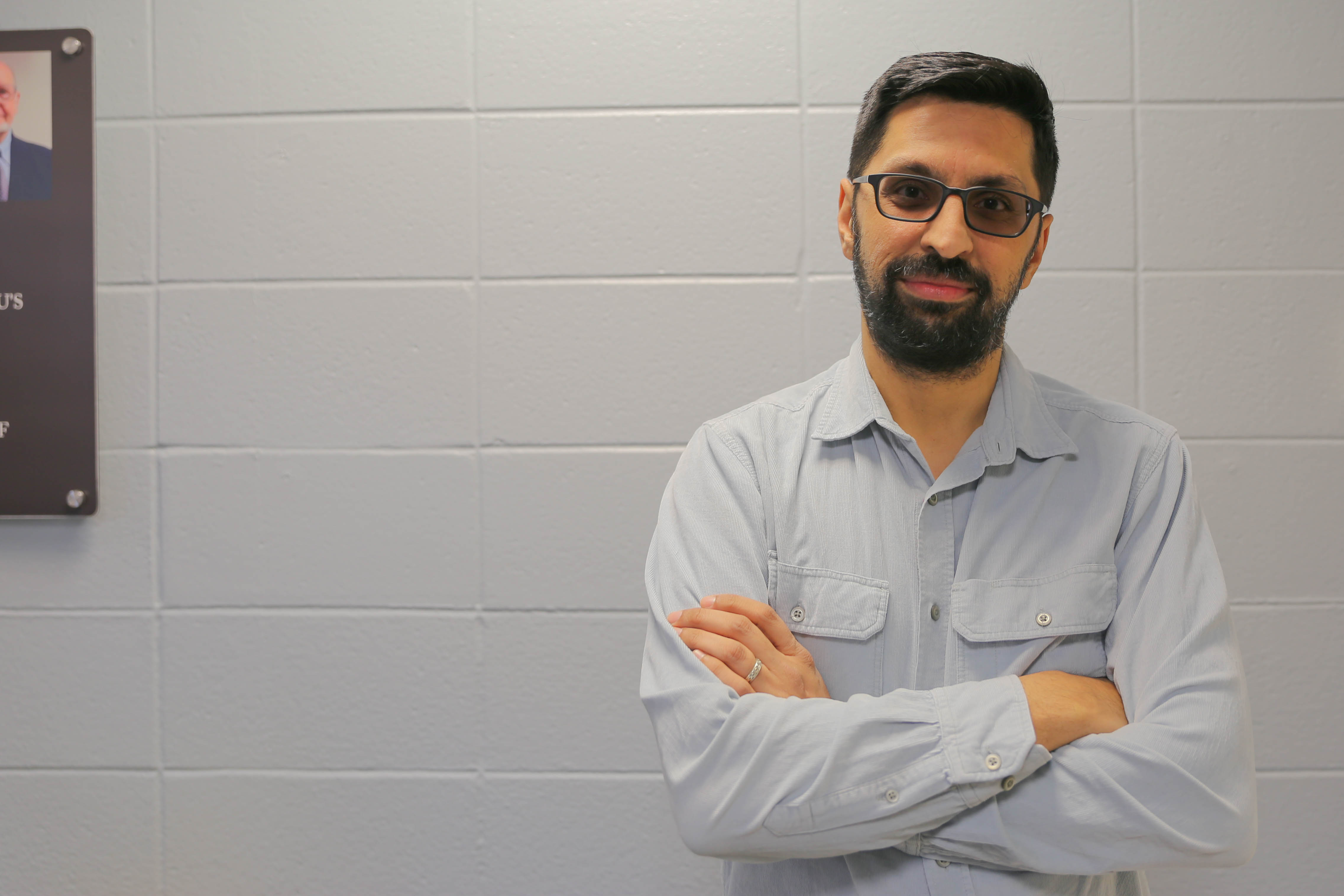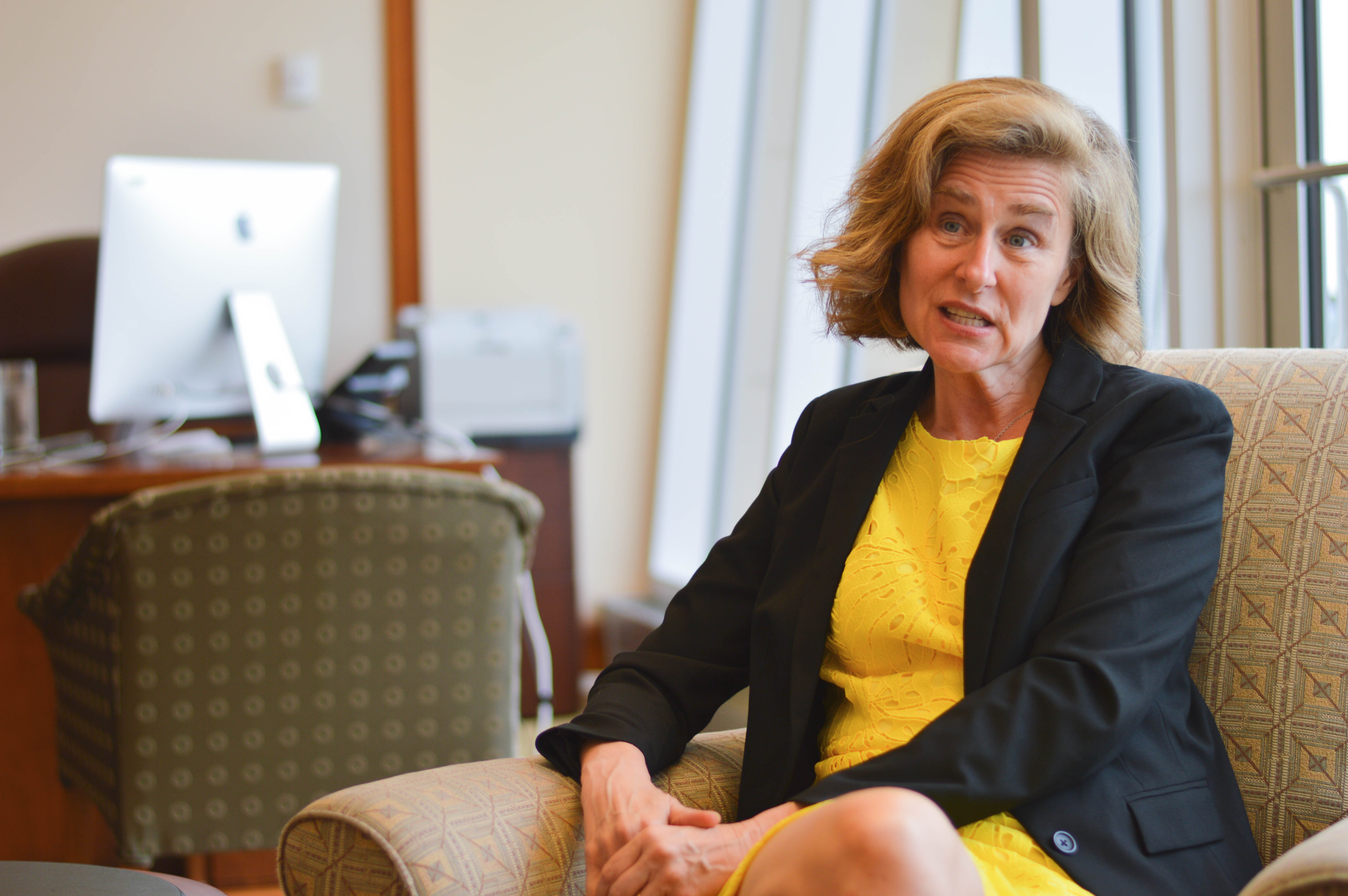Nirmal Trivedi, director of First-Year Seminars at Kennesaw State, has been honored with the Excellence in Teaching First-Year Seminars Award by the National Resource Center for the First-Year Experience and Students in Transition.
The award will be presented to Trivedi at the 38th Annual Conference on the First-Year Experience in Las Vegas this month. Trivedi will also be recognized in “The Chronicle of Higher Education.” This recognition was co-sponsored by Penguin Random House and was awarded to Trivedi on account of his exemplary work in leading and teaching the first-year seminars at KSU.
The first-year seminar is a required class for incoming KSU freshman that aids in the transition into higher education classes. These classes are restricted to 25 students each, allowing for deeper conversations, connections and mentorship potential.
Trivedi commented on the ample benefits of these courses including how they seek to connect students with their instructors and forge relationships.
“Students are able to connect to each other in an academically centered experience with a highly qualified faculty member who is trained on the concerns facing young students when they start college,” Trivedi said. “Our highly approachable faculty destigmatizes the relationship between students and faculty.”
When asked what his initial reactions were to receiving this award, Trivedi stated that he was honored and humbled to be recognized in a field of such “extraordinary teachers,” and said that he “simply did not imagine that [he] would be considered an exemplary one among them.”
Trivedi previously worked at Georgia Tech and was drawn to KSU because of the “focus on teaching as a primary indicator of institutional success” as well as “how valuable the university sees the social and academic development of students” by way of making these seminars mandatory, three-credit hour courses.
The first-year seminar programs aim to focus on three specific areas for students to be successful: student growth, purpose and social belonging. These specific areas were selected as a result of student and faculty feedback, as well as literature and research completed on the subject.
While incoming students frequently express doubt in regards to the value of the program, Trivedi noted that after the completion of the course students said that “they couldn’t imagine their experience without it.”
Students are not the only party to benefit from the first-year seminar course. Trivedi commented on the response from faculty and what they receive as instructors.
“When faculty feel like they are successful, they tell me that they love their job more than anything they’ve done previously,” Trivedi said.
He also remarked on the concerns of student stress levels by their teachers” and the degree to which [students] are expected to figure out how to navigate a very complicated road map to graduation.”
These first-year seminar classes aim to alleviate some of that stress for students while forging those beneficial connections with their instructors.
A change that is occurring within the department is the need for standardization among programs. Due to the increasing number of incoming students, the department is working to ensure that “students receive a common experience.” They see that it is “critical that each faculty member feels like they can bring their individual expertise into their classroom.”
Trivedi sees these changes and challenges as a potential for positive growth and as “an ongoing and exciting process to bring the two sides together.”


